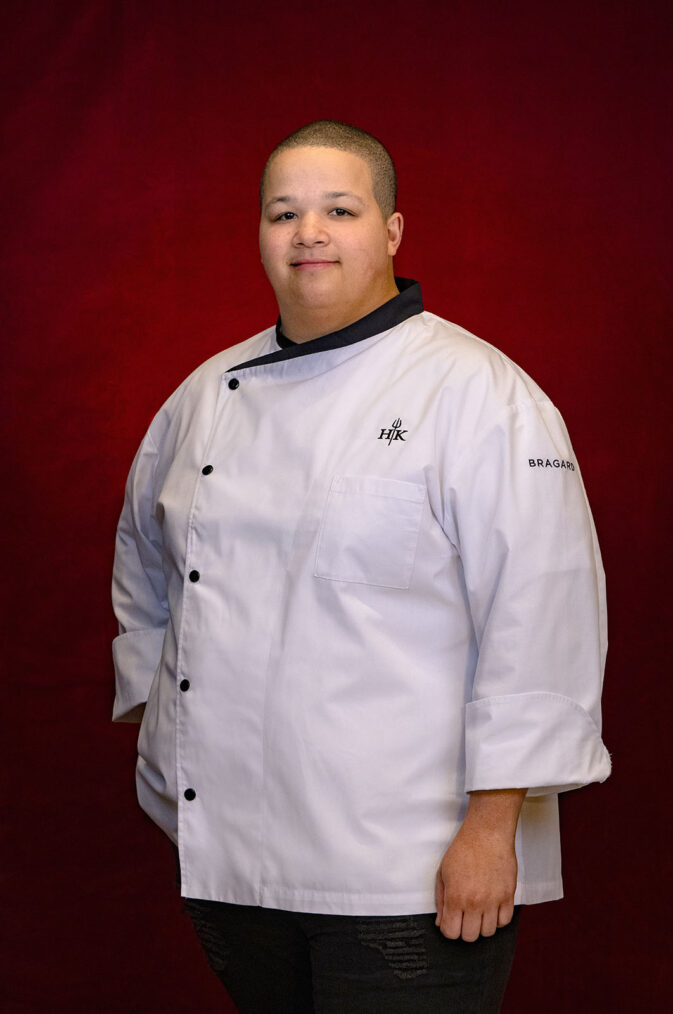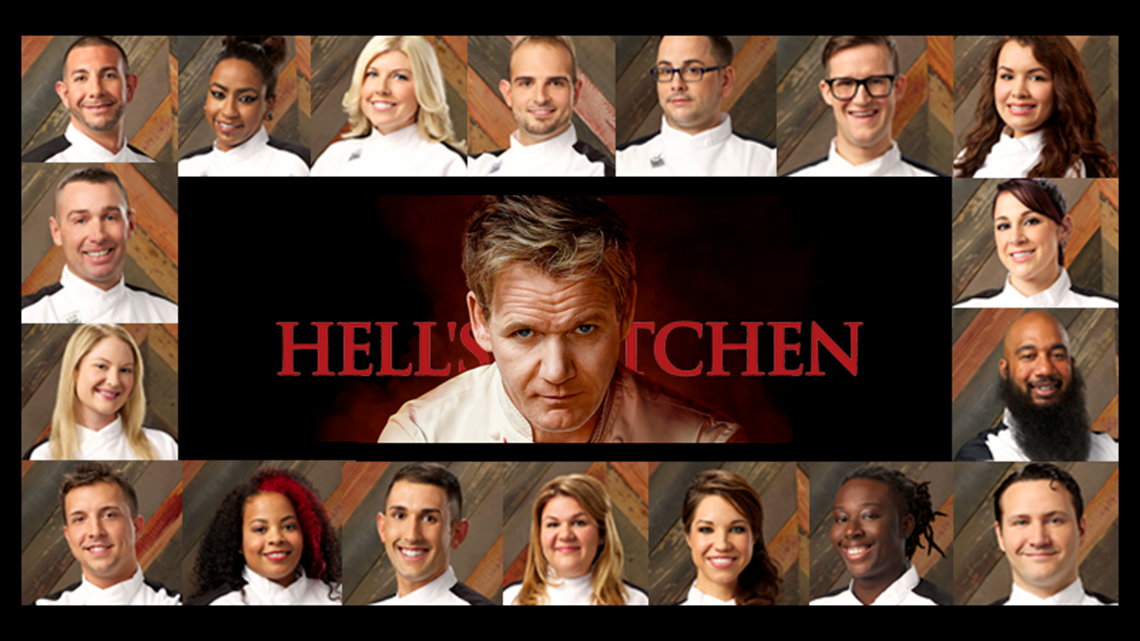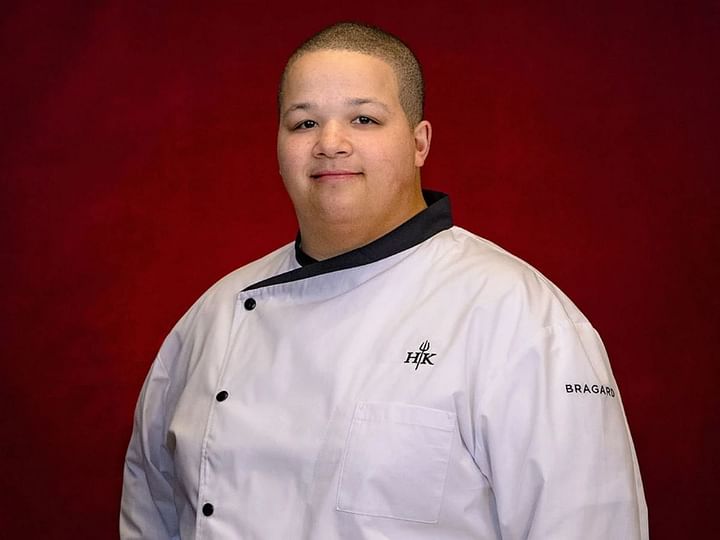Is Kyle From Hell's Kitchen A Woman? Facts Revealed!
Is Kyle from Hell's Kitchen a woman? The answer, definitively, is no. Kyle is a male contestant who has appeared on the popular reality cooking competition, Hell's Kitchen.
The query "is Kyle from Hell's Kitchen a woman" likely stems from either a simple misunderstanding, a casual inquiry born from a viewer's memory lapse, or potentially a deliberate attempt to generate curiosity. Perhaps a particular hairstyle, mannerism, or the context of a specific challenge or episode might have briefly led to the confusion. However, a quick search reveals that Kyle, throughout his appearances on the show, has been and remains male. The focus of Hell's Kitchen, beyond the interpersonal dynamics and dramatic tension, remains centered on the culinary abilities, the technical skill, and the overall performance in the kitchen. While contestants personalities are heavily scrutinized, their biological sex is not a primary factor in their evaluation.
The format of Hell's Kitchen, orchestrated by the notoriously demanding Chef Gordon Ramsay, hinges on a pressure-cooker environment. Aspiring chefs are put through rigorous challenges, judged on their ability to deliver flawless dishes under immense time constraints, and ultimately, judged on their ability to excel under relentless scrutiny. This environment fosters moments of intense emotion and high-stakes competition, where contestants are more likely to be remembered for their cooking skills and their reactions under pressure. In this context, the specific sex of a contestant becomes secondary to their professional performance. The core of the show always revolves around the food and the culinary talent vying for the ultimate prize, a coveted head chef position at a prestigious restaurant.
The show's structure involves weekly eliminations, based on the judges evaluation of dishes, teamwork, and overall attitude. These eliminations are often punctuated by dramatic moments and confrontations, both in the kitchen and during the judging. These moments of heightened tension, amplified by skillful editing and a charismatic host, are carefully designed to keep audiences engaged and invested in the outcome. Therefore, regardless of the viewers query, the core of the show is undeniably about food, skill, and the dramatic journey of the contestants.
The contestants come from diverse backgrounds, bringing a variety of culinary skills, techniques, and personal experiences to the show. The common thread is their ambition and commitment to becoming a successful chef. Kyle, like the other contestants, is there to prove his ability to withstand the challenges, demonstrate his culinary prowess, and ultimately, impress Chef Ramsay.
The focus is consistently placed on the cooking and the competitive spirit. Any personal information, including gender, is secondary to the main objective: to rise above the competition and secure the title. Therefore, the question of whether Kyle is a woman is easily answered by referencing the show's history and the clear visual evidence presented during the series.
Beyond the immediate question about Kyle, the longevity and success of Hell's Kitchen speak to the enduring appeal of culinary competition as a form of entertainment. The show taps into fundamental human interests: the satisfaction of skill, the drama of high-pressure situations, and the allure of gastronomic excellence. The contestants personal stories and the narrative of the series create an interesting story to watch. The core appeal remains the food, the cooking techniques, and the talent on display.
Ultimately, the query about Kyle's gender highlights the nature of perception within a heavily edited reality show. The viewer often forms their opinions based on fleeting moments, edited narratives, and the personalities on display. While the question of Kyle's gender may be asked by a viewer, the answer is ultimately a simple one, one that leads back to the heart of Hell's Kitchen: the food, the challenges, and the chef's quest for culinary excellence.
| Category | Details |
|---|---|
| Name | Kyle (Specific last name withheld for privacy, as is standard practice) |
| Gender | Male |
| Occupation (Prior to Hell's Kitchen) | Chef (Specific background and experience vary by season) |
| Season of Hell's Kitchen Appeared | (This depends on which "Kyle" the question refers to. A specific season and participant would need to be identified.) |
| Notable Characteristics (on the Show) | (Specific skills, personality traits, strengths, and weaknesses vary by contestant and season. Refer to show footage for specific details.) |
| Performance on the Show | (Results varied by contestant. The outcome and placement in the competition would depend on the specific season.) |
| Post-Show Activity | (Information about a contestants career after the show is often available through various sources. It is important to verify the sources.) |
| Reference Link (for general information about Hell's Kitchen) | Official Hell's Kitchen Website (Fox) |
The question "is Kyle from Hell's Kitchen a woman" becomes a testament to the influence of reality television, in particular. It is not uncommon for viewers to focus on the personalities of contestants and their interactions, leading to curiosity about a contestant's background or identity. The edit often creates character archetypes that are defined by their traits. A viewer's question is also born from the desire to understand someone better. It is a natural human inclination, when presented with people put in high-pressure situations, to want to analyze them more closely, from their body language to their background.
The editing of Hell's Kitchen is, of course, a crucial element. The producers will choose what to show and how to portray it. This editing, the framing, the addition of sound effects, and the highlighting of particular conflicts, all work to heighten the drama, create compelling viewing experiences and amplify the personalities involved. This is the primary function of the shows.
Hell's Kitchen, beyond its culinary focus, often incorporates a blend of personality and drama, further contributing to viewers curiosity. Contestants are not only judged on their ability to cook but also on their ability to work under pressure, collaborate in a team, and handle criticism from Chef Ramsay. All this adds to the entertainment value. The shows structure, with its weekly challenges, team rivalries, and individual evaluations, builds tension that is almost constant. This dynamic drives the narrative forward. It keeps the audience engaged and invested in the outcomes.
The presence of a demanding, no-nonsense chef like Gordon Ramsay is, therefore, a key element. Ramsays intensity, the often-harsh critiques, and his high standards for culinary excellence become central to the shows appeal. His personality, as well as the show's competitive nature, make it a popular show. The dramatic conflicts, the interpersonal dynamics, and the high-pressure environment are all designed to entertain the audience.
Beyond the immediate question of Kyles gender, the underlying appeal is rooted in the fundamental themes of competition, skill, and the desire for excellence. Watching chefs work under pressure is captivating, and the stakes are high. Viewers are drawn to the show for its display of talent and the drama of a competitive environment.
The lasting popularity of Hell's Kitchen demonstrates the enduring appeal of the culinary arts as entertainment. The show is a source of dramatic moments and culinary expertise. It has developed into a cultural phenomenon, and its contestants lives have been observed and analyzed. The question, "Is Kyle from Hell's Kitchen a woman?" becomes a reminder of the show's captivating power and the viewer's interest.
The structure of the show is built on a series of culinary challenges. Each challenge is designed to test the contestants skills and culinary knowledge. Teamwork and individual performance are carefully evaluated, and the ultimate goal is to identify and develop a top chef. The competition is rigorous and requires not only culinary skills but also the ability to perform under pressure.
The impact on the culinary landscape is significant. The show has increased awareness of the culinary arts and has inspired new chefs. It promotes a broader understanding of food, cooking, and culinary techniques. The high-pressure environment also provides a clear representation of the culinary world. In addition, the success of Hell's Kitchen has also spawned many spin-off shows.
The show has helped to launch many chefs careers. The show provides significant exposure and gives contestants opportunities to learn and improve. The winners have the potential to achieve their dreams in the culinary industry. This success has been well documented and shows the value of the show.


